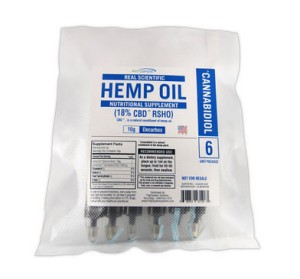 The cannabis industry has been extremely compartmentalized, thanks to state laws enacted in the absence of wider federal legalization and direction. Although states have made a great effort to be thorough, legislation at the state level still imposes restrictions that limit business growth and offer forms of protectionism that promote the exclusion of large corporate consolidation. Entrepreneurs pioneering the industry have responded by maturing their products to better navigate the regulatory environment. What the future will hold is anyone’s guess right now, but national and worldwide cannabis legalization efforts bode well for the future of the industry.
The cannabis industry has been extremely compartmentalized, thanks to state laws enacted in the absence of wider federal legalization and direction. Although states have made a great effort to be thorough, legislation at the state level still imposes restrictions that limit business growth and offer forms of protectionism that promote the exclusion of large corporate consolidation. Entrepreneurs pioneering the industry have responded by maturing their products to better navigate the regulatory environment. What the future will hold is anyone’s guess right now, but national and worldwide cannabis legalization efforts bode well for the future of the industry.
Given that the two broad categories in the cannabis industry are recreational cannabis and medicinal cannabis, the logical conclusion is that products focused on health and wellness will receive the least amount of resistance at the national level. While the recreational market is extremely lucrative, a timeline for federal legalization that would collapse the underground market and open the door to legalized distribution is not on the visible horizon.
Entrepreneurs such as Jamen Shively—former Microsoft Corporate Strategy Manager and the founder of Diego Pellicer, a proposed ”premium” cannabis brand—are resigned to wait out the federal government. Shively, who is planning to open a chain of stores nationally (Citation 1), has met with much controversy. He’s often considered to be the voice of “big marijuana”, even as he represents only a small corner of the market. Some believe that the premium branding model won’t work with marijuana, but Shively is willing to wait as long as it takes to find out.
GrowLife, a company that markets hydroponics equipment for both large and small scale operations, is not handicapped by legalization. But GrowLife still has a significant amount of growth tied to the access that would be afforded by the removal of marijuana prohibition.
All roads to near-term significant growth seem to lead back to health and wellness products. This revelation is not one held by a perceptive few; the flood gates have opened and numerous public companies are looking to develop the next medical breakthrough.
Then there is Medical Marijuana, Inc (MJNA) that has focused on high caliber investments and manufacturing across the cannabis industry. The company’s subsidiary profile reads like a “who’s who” of the next generation of breakout companies that can be invested in on the open market.
A great example of one of these acquisitions is KannaLife Sciences, which holds the exclusive license agreement with the US National Institutes of Health – Office of Technology Transfer (NIH-OTT) for the commercialization of US Patent 6630507, “Cannabinoids as antioxidants and neuroprotectants” (the “‘507 Patent”). KannaLife is permitted to focus their exclusive license agreement on hepatic encephalopathy (HE), a disorder associated with reduced brain function due to various forms of liver toxicity.
Back in February 2013, Medical Marijuana Inc. created a synergistic relationship with CannaVest (CANV) through a licensing arrangement of its PhytoSPHERE assets. CannaVest is using those assets produce its new product lines—Real Scientific Hemp Oil (RSHO), Cibdex™, Cibaderm™—through its subsidiary, US Hemp Oil. These products are all infused with high quality, legal, hemp-based cannabidiol (CBD), the cannabis compound showing significant promise in the treatment of epilepsy, schizophrenia, and cancer. Unlike most of the cannabis products people hear about, hemp-based CBD is legal and can be consumed in all 50 of the United States. CBD doesn’t have the psychotropic effects that are associated with THC, the component in marijuana that produces the “high”. CBD was recently featured in CNN’s Chief Medical Correspondent Dr. Sanjay Gupta’s special documentary, WEED, which highlighted the compound’s ability to treat a form of severe childhood epilepsy known as Dravet Syndrome.
Medical Marijuana, Inc. and its family of companies are now in a transformational phase. Much of the company’s previous activities had been focused on acquisition, strategic partnerships and product development. Now the company is transitioning some of that focus to put the fruits of its labor into the hands of the consumer.
Both MJNA and CANV are now marketed by HempMedsPX, their portfolio and contracted marketing company. HempMedsPX recently turned up the “marketing heat” with its new focused marketing campaign and retention of the medical marijuana industry icon Cheryl Shuman. Ms. Shuman will be joined by Charles Vest, the HempMedsPX VP of Communications on the Ohio Rights Group (ORG) ten day and forty-stop tour.
It’s rare to see an industry that’s not based on information technology have so much potential for growth. While news about the next greatest smart phones dominate the media, the overwhelming evidence of the genuine health and economic benefits of cannabis are filtering into the national discussion like never before. Medical Marijuana Inc. and CannaVest have clear advantages in that they have developed a completely legal product line for those that have a need today and, as such, are already equipped to be trustworthy industry leaders when cannabis is fully legalized. With unique CBD-based products entering the market, and a pharmaceutical pipeline in development, their evolution to be the next company with household name recognition in the US and international markets might be on the horizon.
Disclosure: I am an investor in MJNA and (OTC: CANV) and this article was written on behalf of Medical Marijuana, Inc.
Citations
Citation 1 – Website link: http://video.msnbc.msn.com/msnbc/52723690#52723690
Related articles
- The DOJ Expands Markets for Medical Marijuana, Inc. and Subsidiaries! (mjmarketwatch.wordpress.com)
- Can The Cannabis Component Cannabidiol (CBD) Cure Schizophrenia? (mjmarketwatch.wordpress.com)
- Medical Marijuana, Inc. and Subsidiary Partners Offer Legal CBD Now! (mjmarketwatch.wordpress.com)
- New Product – CBD Simple, Wins High CBD Award at the US Cannabis Cup Seattle 2013 (mjmarketwatch.wordpress.com)
- Hemp Veteran Chris Boucher Shares His Insight on the Industry and the New Hemp CBD-Infused Cibaderm Product Line at Natural Products Expo East in Baltimore (mjmarketwatch.wordpress.com)
- Medical Marijuana Inc.’s HempMedsPX Retains Medical Marijuana Industry Icon Cheryl Shuman as a … (biomedreports.com)






